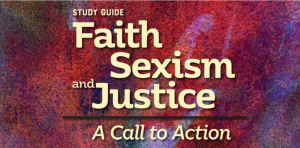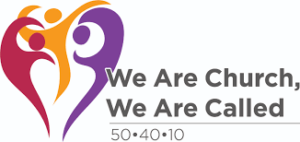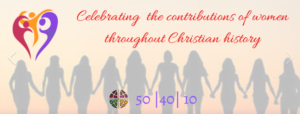ELCA timeline for Women’s Ordination and Leadership
In 1970, the Lutheran Church in America (LCA) and The American Lutheran Church (ALC) both approved women’s ordination. In November, Elizabeth Platz was ordained in the LCA. In December, Barbara Andrews ordained in ALC.
In 1976, Janith Otte was the first woman ordained in the Association of Evangelical Lutheran Churches (AELC)
In 1980, the ELCA began ordaining women of color
In 1988, The Evangelical Lutheran Church in America (ELCA), formed by a merger of ALC, the LCA, and the AELC, became the largest Lutheran denomination in America.
1988-1998, was declared the “Ecumenical Decade of the Churches in Solidarity with Women.”
In 1992, April Ulring Larson was elected as the first female bishop within the ELCA.
In 1993, an interdenominational “Re-imagining” conference brought together feminist theologians, lay and clergy, to “reimagine” the church, particularly male-dominant language and imagery.
In 2013, Elizabeth Eaton became the first woman to be elected as the Presiding Bishop of the ELCA, the highest position of authority within the church.
In 2014, women clergy made between 86% and 90% of what their male colleagues did.
In 2016, women were more likely than men to be in small congregations with one hundred or fewer members. They were as likely as men to be in congregations with 500 or more members, but in large congregations women were more likely to be associates or assistants.
In 2016, women clergy were nearly twice as likely as men to have part-time calls.
In 2018, a record number of 6 women were elected as ELCA bishops in a calendar year. This group included the first African American female bishops, Patricia Davenport and Viviane Thomas-Breitfeld.
In 2018, the numbers of women and men preparing for ministry in the seven ELCA seminaries are about equal.
In 2019, Bishop Laurie became the first female bishop elected to the Oregon Synod.
In 2019, the social teaching statement, “Faith, Sexism, and Justice: A Call to Action” was adopted by the 2019 Assembly with a positive vote of 87%.
In 2022, half of ELCA bishops are women.

ELCA’s newest social statement: Faith, Sexism, and Justice: A Call to Action
Though God desires fullness of life and equity for everyone, as a church we recognize that women and girls in particular suffer a range of harm and injustice due to sex (biological), gender, or both. In addition to sex and gender, the experiences of individuals and groups are shaped and complicated by intersecting factors. These include race, ethnicity, national origin, nationality (including American Indian and Alaska Native), religious identity, immigration status, sexuality, marital status, economic means, age, ability, embodied experiences, and education. This reality is known as intersectionality. This statement’s references to women and girls are intended to be inclusive of all people who identify as women or girls in the diversity of their individual and communal identities and expressions.
Faith, Sexism, and Justice: A Call to Action study guide featuring six flexible sessions that can be customized for in-person gatherings or virtual meetings. Each session incorporates prayers, videos, engaging activities, Scripture study and invitations to live out the call to gender justice in the world.
Additional Resources
ELCA Justice for Women program
- Resources
- Annotated bibliography of Lutheran women religious scholars in the United States
Lutheran World Federation Women’s Empowerment and Gender Justice network works toward the full participation of women in the communion’s life and pursues this commitment at all levels of the federation. The ELCA is a member church of the federation and works collaboratively to support global gender justice. Explore the LWF Gender Justice Policy – the first of its kind.
“What Is Meant by Inclusive and Expansive Language in Worship?”
50 | 40 | 10 2020 Celebration!

In 2020, the ELCA celebrated the 50th anniversary of ordaining women, the 40th anniversary of ordaining women of color, and the 10th anniversary of ordaining LGBTQ people.
- If you want to dig deeper, this website explores the history of the ordination decision and what came after.
- Here is a playlist of ELCA videos related to the anniversary.
- To read the stories of rostered women of color, check out “God’s Faithfulness on the Journey.”
- Living Lutheran has a series of articles reflecting on the anniversary as well!

